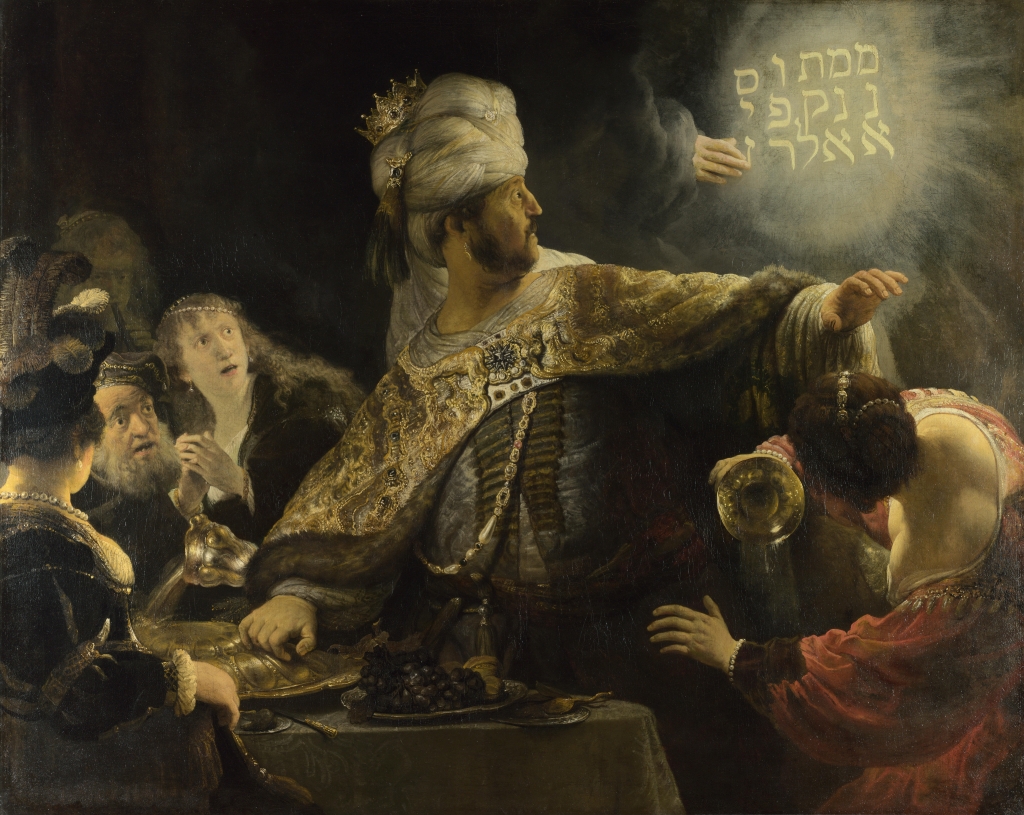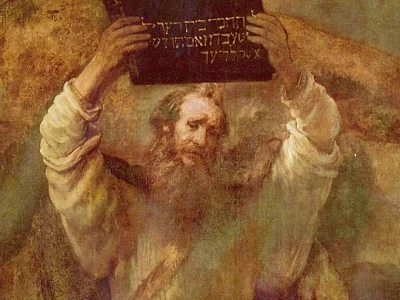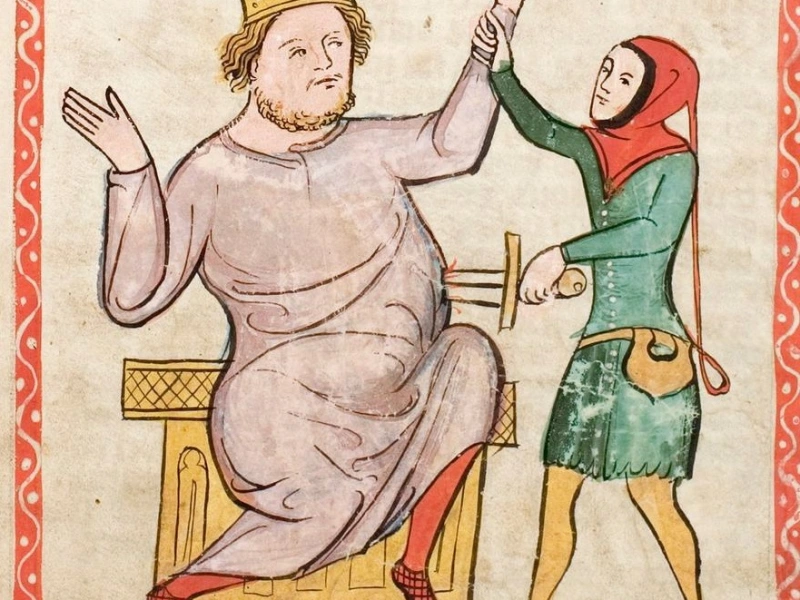



You don’t have to be religious to be curious about the Bible. Many atheists and non-believers are fascinated by what is – and is not – in the Bible. And many believers are surprised when they learn some of their cherished ideas simply aren’t in the ‘good book’ or that the Bible contains some surprising things they didn’t know were there (such as ‘toilet humour’). This blog explores how the Bible was written; why there are multiple (and sometimes contradictory) versions of several stories; why some religious individuals and groups believe things which are simply not in the Bible; and the social, political and historical background to the Bible and how it influenced what was written.
I’ve named this blog Mikra (מקרא – also spelled Miqra), which is a Hebrew word derived from קרא, kara “to call”, and means “that which is read” in the sense of being read aloud. It generally refers to the Hebrew Bible, which is also commonly called the Tanakh, although arguably it could be used to refer to any scriptures which are read aloud or used liturgically. I’m going to use it here in a broader sense and post articles under this heading from my studies in the Hebrew Bible, the New Testament, and non-canonical Jewish and Christian religious literature.
Most popular posts
Was David illegitimate?
There are some hints in the Bible that King David had a troubled childhood and that he may not have been fully accepted by his father and brothers as a legitimate son. This might explain why David wrote “In sin my mother conceived me.”
Weeping and gnashing of teeth
This is a strange expression which appears in one of Jesus’ parables. What does it mean? Does it have something to do with eternal punishment in hell, or is that a myth?
Does the New Testament always quote from the Septuagint?
This post is part of a series about quotations from the Old Testament (or Hebrew Bible) in the New Testament. It deals specifically with the question of whether the NT writers used a Hebrew or Greek Bible, but you may like to read the whole series.
Does God like handsome men?
Some of the biblical writers seem to have an obsession with how people look. For example, we read that “Joseph was handsome and good-looking” (Genesis 39:6), that Saul was “a handsome young man” (1 Samuel 9:2) …
The Bible’s one and only fart joke
It seems everyone likes a good fart joke so it’s hardly surprising that a lot of people end up here, although it might be more surprising that some people are looking for one in the Bible. What is surprising to some people is that the Bible actually does have a fart joke!
Who wrote the biblical book of Daniel?
It might seem like a silly question to some: of course Daniel wrote the book of Daniel! However, while the story of Daniel is set in Babylon during the exile (597-539 BCE) it was almost certainly written much later between 167 and 164 BCE.
Popular series
Did King David have Narcissistic Personality Disorder?
This theory explores some of the biblical evidence that David may have had a personality disorder, which may explain his erratic behaviour and difficulties forming close personal relationships.
- David and Jonathan
- David and Narcissistic Personality Disorder
- Did David really care for Mephibosheth?
- David, Amnon, Tamar and Absalom – narcissism and its family consequences
- David and Joab – being the friend of a narcissist
Quotations from the Old Testament in the New Testament
Did the writers of the New Testament quote from the Hebrew Bible or did they use the Greek translation known as the Septuagint? Does it matter? It matters when the Hebrew and Greek have different meanings and readers want to know which version is the ‘correct’ one. This series explores these questions.
- The Septuagint and the New Testament
- Testimonia – help from Qumran
- Does the New Testament always quote from the Septuagint?
- Misquoting the Old Testament (in the New)
- Does Matthew quote from the Hebrew Bible or the Septuagint?
- How the Dead Sea Scrolls help with New Testament studies
- Which biblical manuscripts are ‘right’: Qumran, the Septuagint, or the Masoretic Text?
Homosexuality and the Bible
This series began as a response to claims made by Israel Folau in social media that the Bible condemns homosexuality and goes on to examine the biblical texts most often quoted to support the claim.
- Israel Folau’s dodgy theology (part 1)
- Israel Folau’s dodgy theology (part 2)
- More on dodgy theology (3)
- Dodgy theology (4): “It is an abomination”
- Dodgy theology (5): the sin of Sodom
- Dodgy theology (6): “your father’s nakedness”
- David and Jonathan
- A biblical homophobic slur?
- Homosexuality in the New Testament (1)
- Homosexuality in the New Testament (2)
- I wasn’t going to mention Israel Folau again, but then …
Contradictions in the Bible
This series explores how the Bible was written and re-written and helps to make sense of apparent contradictions and why there is often more than one version of a story.
- The Bible in conversation with itself
- The Bible in Conversation with itself (2): Why two accounts of the history of Israel?
- The Bible in Conversation with itself (3): Why two (different) accounts of the reign of Solomon?
- (Re)writing the Bible: solving contradictions between Kings and Chronicles (and in the Gospels)
- Historiosophy, inerrancy, and Chronicles
- How the Bible was (re)written: ‘Inspiration’
- The Bible in conversation with itself: Jonah versus Amos
The “suffering servant” of Isaiah 53
Who was this unnamed person? Is it a metaphor for the nation of Israel, a prophecy about Jesus, or does it refer to someone else?
- The “suffering servant” of Isaiah 53 (1)
- The “suffering servant” of Isaiah 53 (2)
- The “suffering servant” of Isaiah 53 (3)
- The “suffering servant” of Isaiah 53 (4)
Jonah – parody of a prophet
My PhD thesis was about reading Jonah as satire. These posts were written while I was working on my thesis and examine the arguments made by some scholars that the book of Jonah actually parodies the prophet.
- Jonah – parody of a prophet? (1)
- Jonah – parody of a prophet? (2)
- Jonah – parody of a prophet? (3)
- Jonah – parody of a prophet? (4)
- Jonah – parody of a prophet? (5)
- Jonah – parody of a prophet? (6)
Also see these articles related to Jonah:
- The Bible in conversation with itself: Jonah versus Amos
- The Sign of Jonah
- Sheol identified
- Books with weird endings
Irony and satire in the book of Esther
One of my main research interests is the use of irony and satire in the Bible. This series came out of a series of lectures which I gave at the University of Sydney on the book of Esther.
- “A man is master in his own house”: Irony and satire in the book of Esther (1)
- Exaggeration and hyperbole: Irony and satire in the book of Esther (2)
- Is Mordecai the real hero? Irony and satire in the book of Esther (3)
- Dark humour: Irony and satire in the book of Esther (4)
- Defining satire: Irony and satire in the book of Esther (5)
- What Judith can tell us about Esther: Irony and satire in the book of Esther (6)
- The target: Irony and satire in the book of Esther (7)
Also see these articles related to Esther:
- When were Daniel and Esther written, and why? (1)
- When were Daniel and Esther written, and why? (2)
- What Daniel, Esther, Judith and Joseph have in common
- The two (or three) versions of Esther
Heroes and villains in the Bible
You might be surprised to discover that some of the ‘heroes’ of the Bible are not always the good guys, and some of the ‘baddies’ are actually not too bad.
- Heroes and villains in the Bible (1): Solomon and Jeroboam
- Heroes and villains (2): the villainising of Jeroboam
- Heroes and villains (3): the division of Israel into two kingdoms and its causes
- Heroes and villains (4): the art of writing and rewriting biblical propaganda
- Heroes and villains (5): Abiathar and Zadok and the priestly contest for power and influence
- Heroes and villains (6): Uzziah, aka Azariah – is burning incense a bad thing?
- Heroes and villains (7): Manasseh, and who to blame for the exile
You might also be interested in these related posts:
Latest posts
Follow Me
Get new content delivered directly to your inbox.





